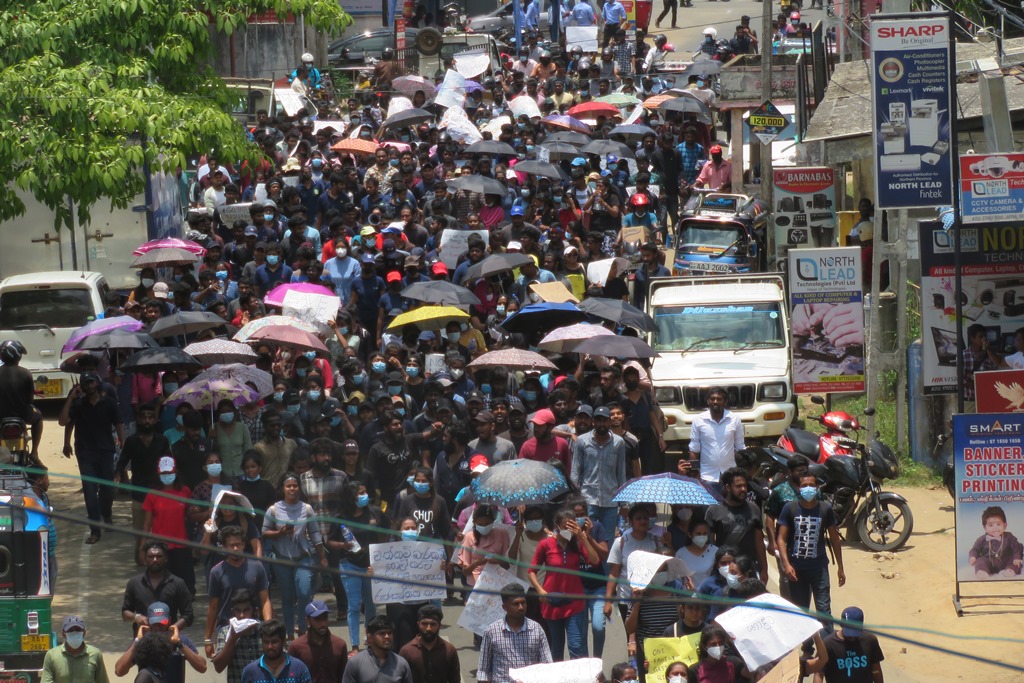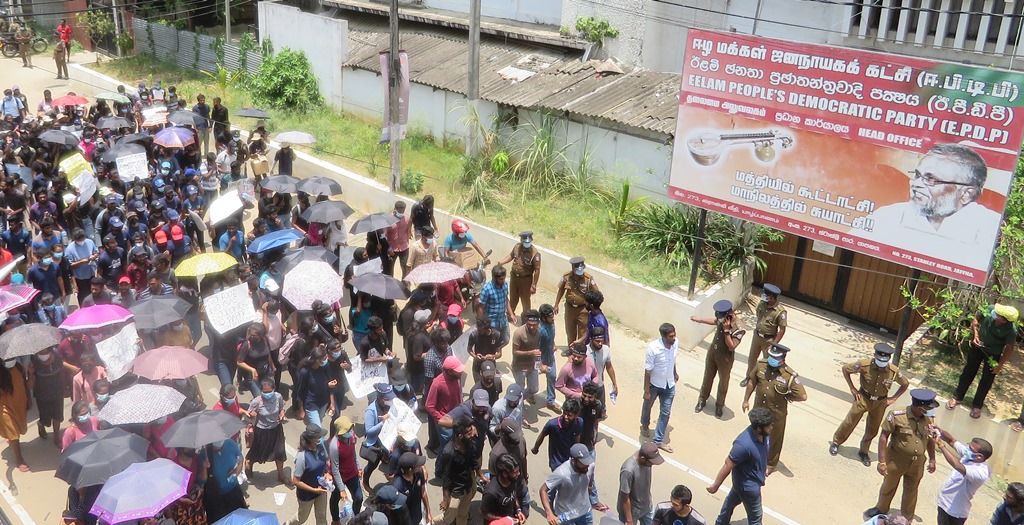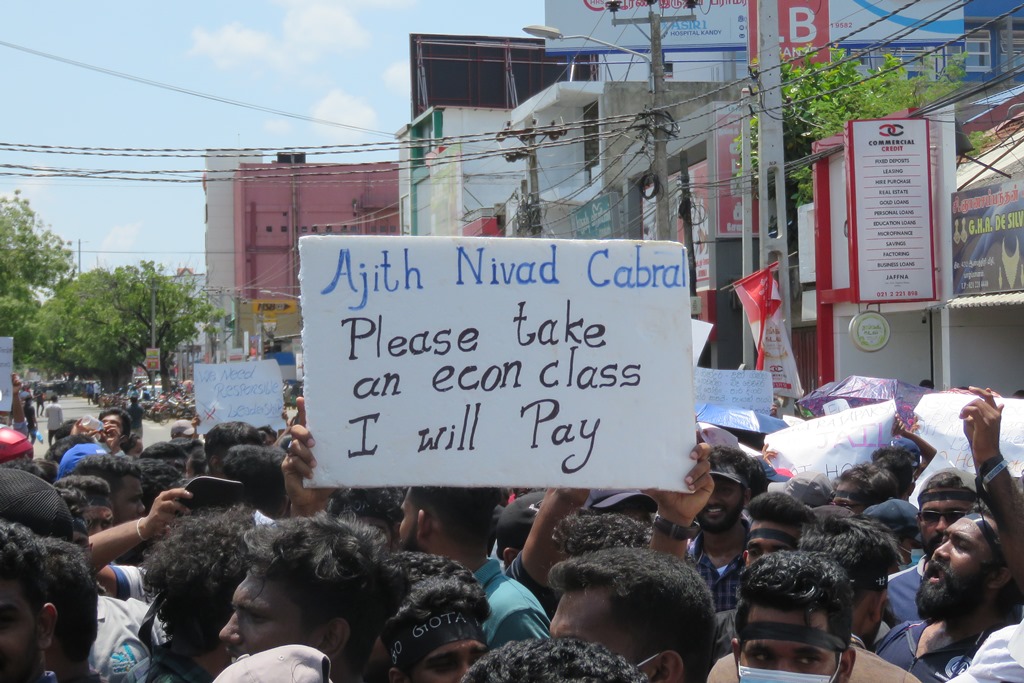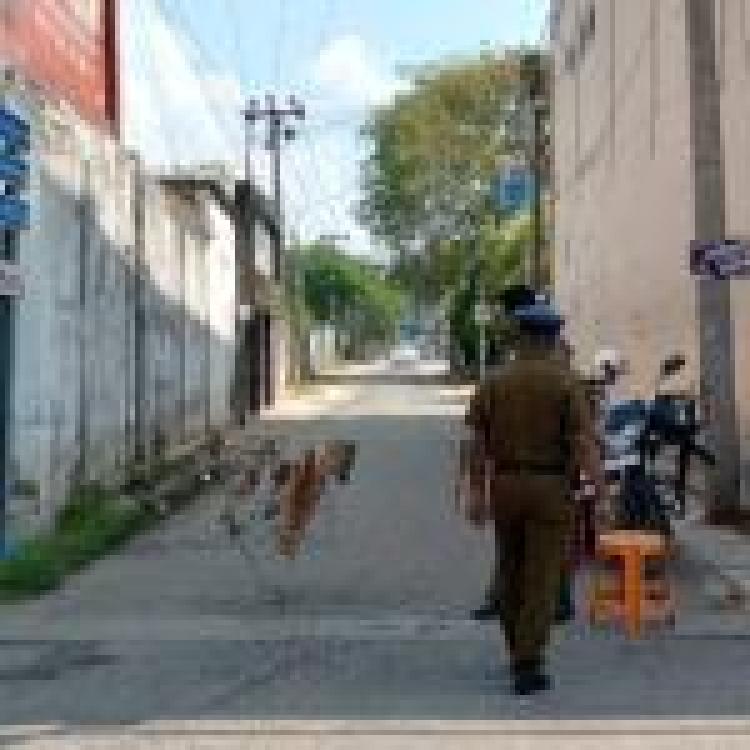Students at the University of Jaffna rallied through the town today, as they demanded the resignation of Sri Lanka’s president Gotabaya Rajapaksa, amidst a political crisis in Colombo.
Hundreds rallied through Jaffna, holding placards demanding the resignation of the ruling Rajapaksa regime and an end to the economic crisis.
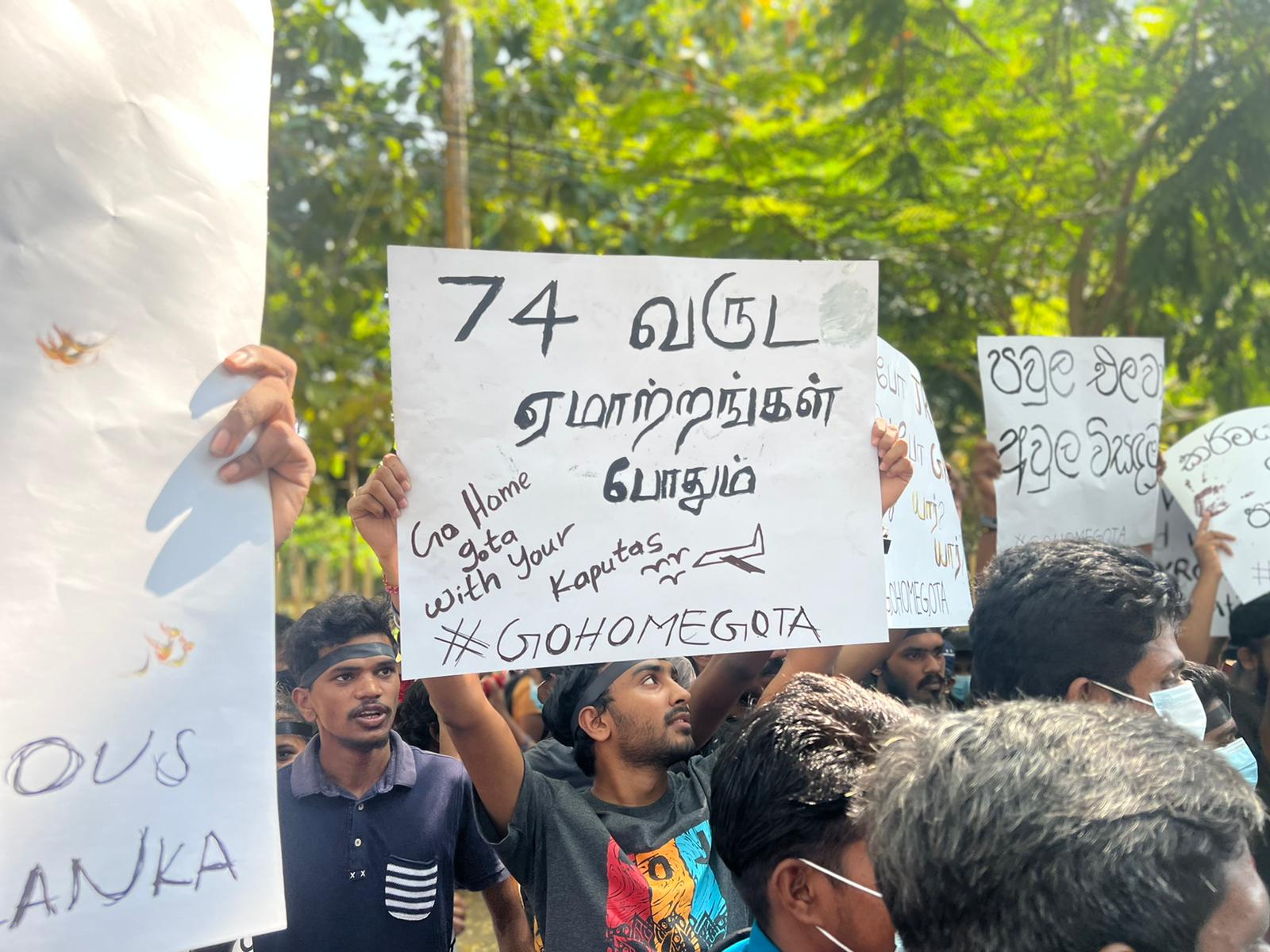
Earlier this morning, Sri Lanka’s president announced a new four-member cabinet made up of his allies, after every single minister resigned, except his elder brother prime minister Mahinda Rajapaksa.
Despite the resignations and new appointments, protests have continued across the island today.
Read more:
Sri Lanka's new cabinet - familiar faces are back
Turmoil in Sri Lanka as entire cabinet resigns except Prime Minister Rajapaksa
Tamil students slammed the president chanting "No petrol, no diesel, no brains for Gotabaya".
As they marched through town, the protestors rallied past the EPDP office, where Sri Lankan minister and paramilitary leader Douglas Devananda was reportedly inside watching the protest unfold.
In response to the series of anti-government protests that have engulfed the island, Gotabaya Rajapaksa imposed successive draconian measures. The state implemented a country-wide curfew, a state of emergency, and blocked access to social media sites used to organize protests and foment dissent. In the Western province, Sri Lankan police arrested over 600 people. The restrictions on social media have since been lifted.
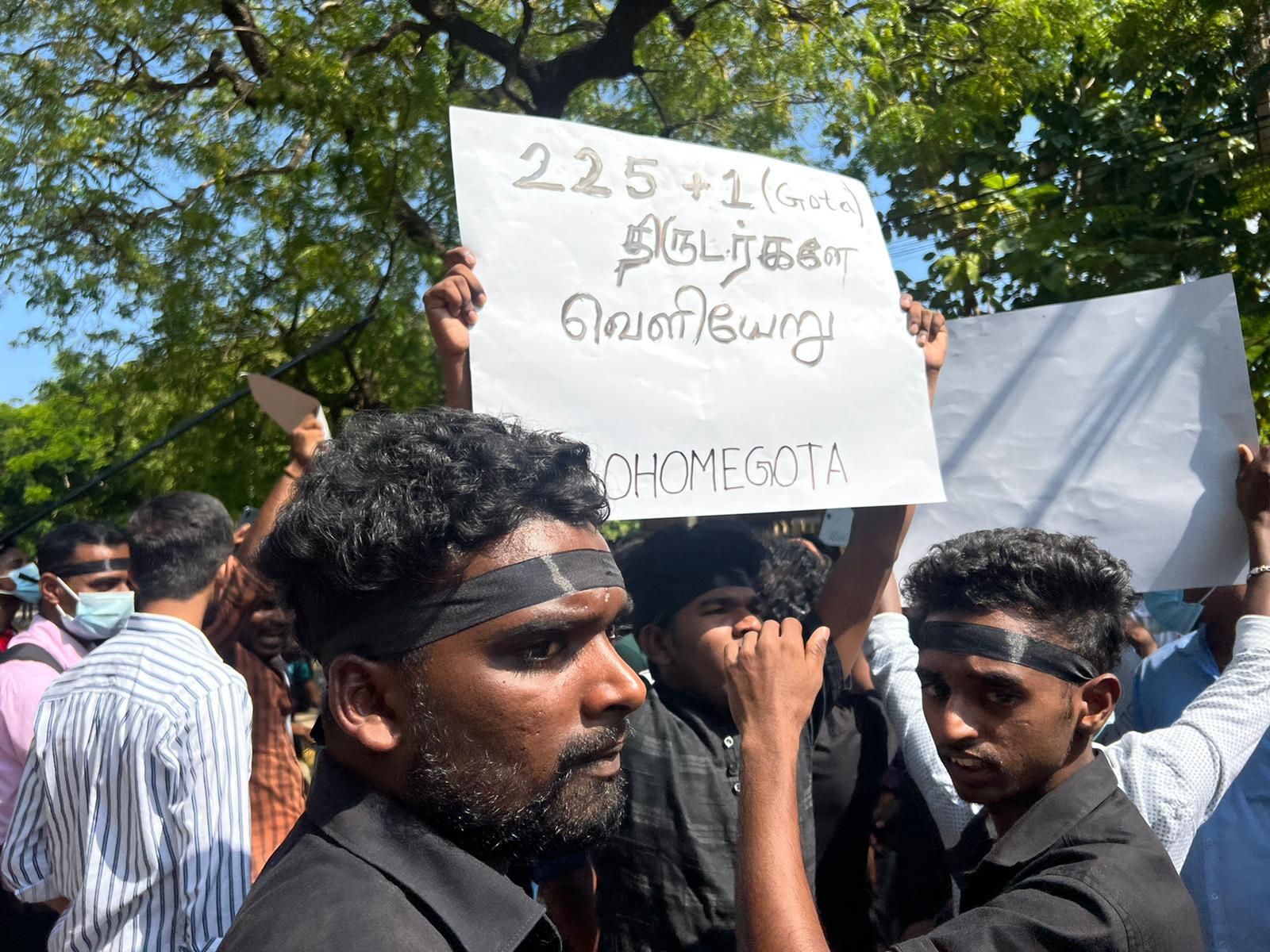
The Science Students’ Union of the University of Jaffna had organised the demonstration to convey the grievances of students during the ongoing economic crisis.
.jpeg)
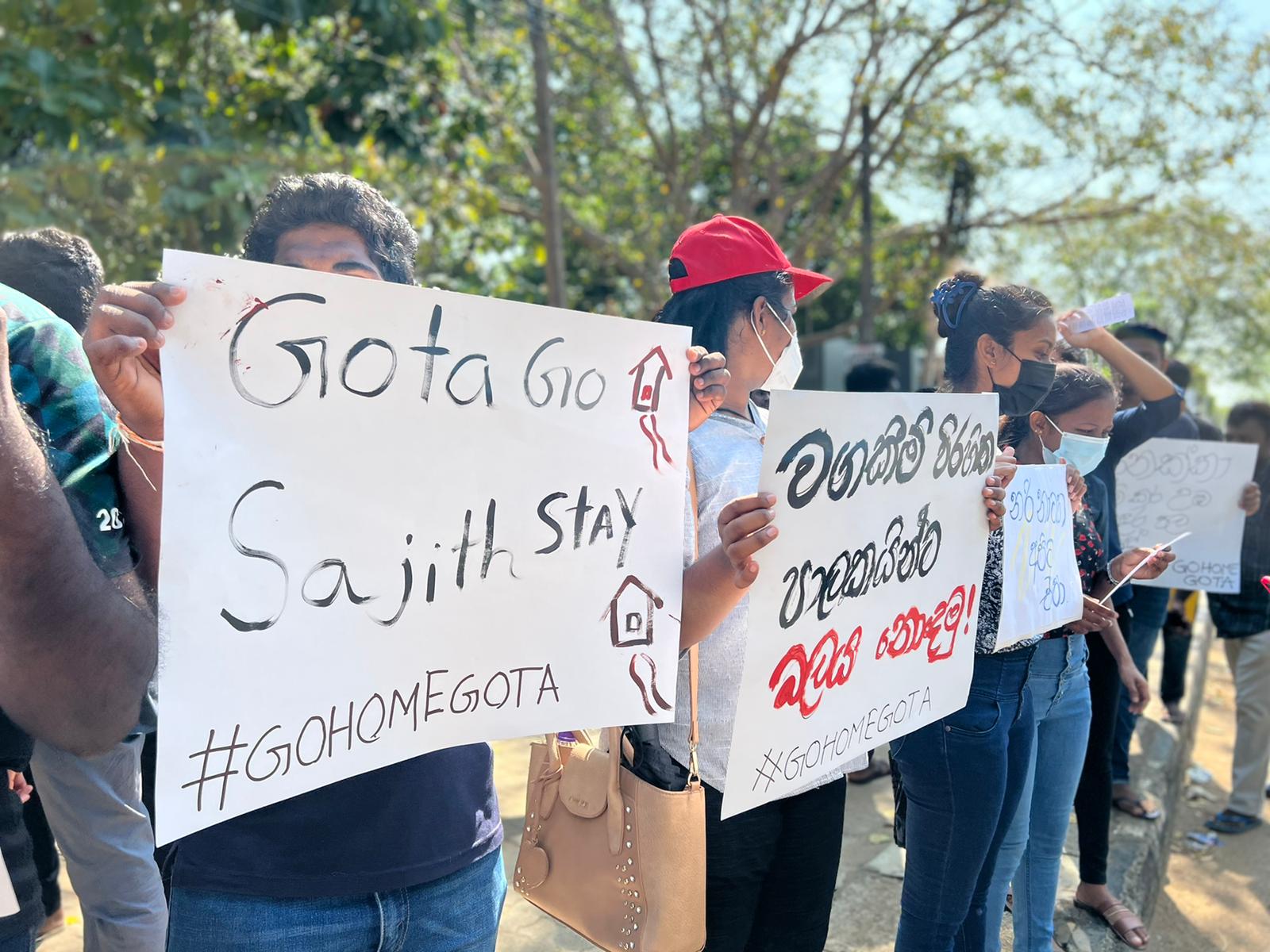
In a statement, the union wrote that:
“The strike is fixed to raise our voice to the issues, faced by the students such as Power cut, unbearable living cost, inflation and high cost of stationeries [...]”
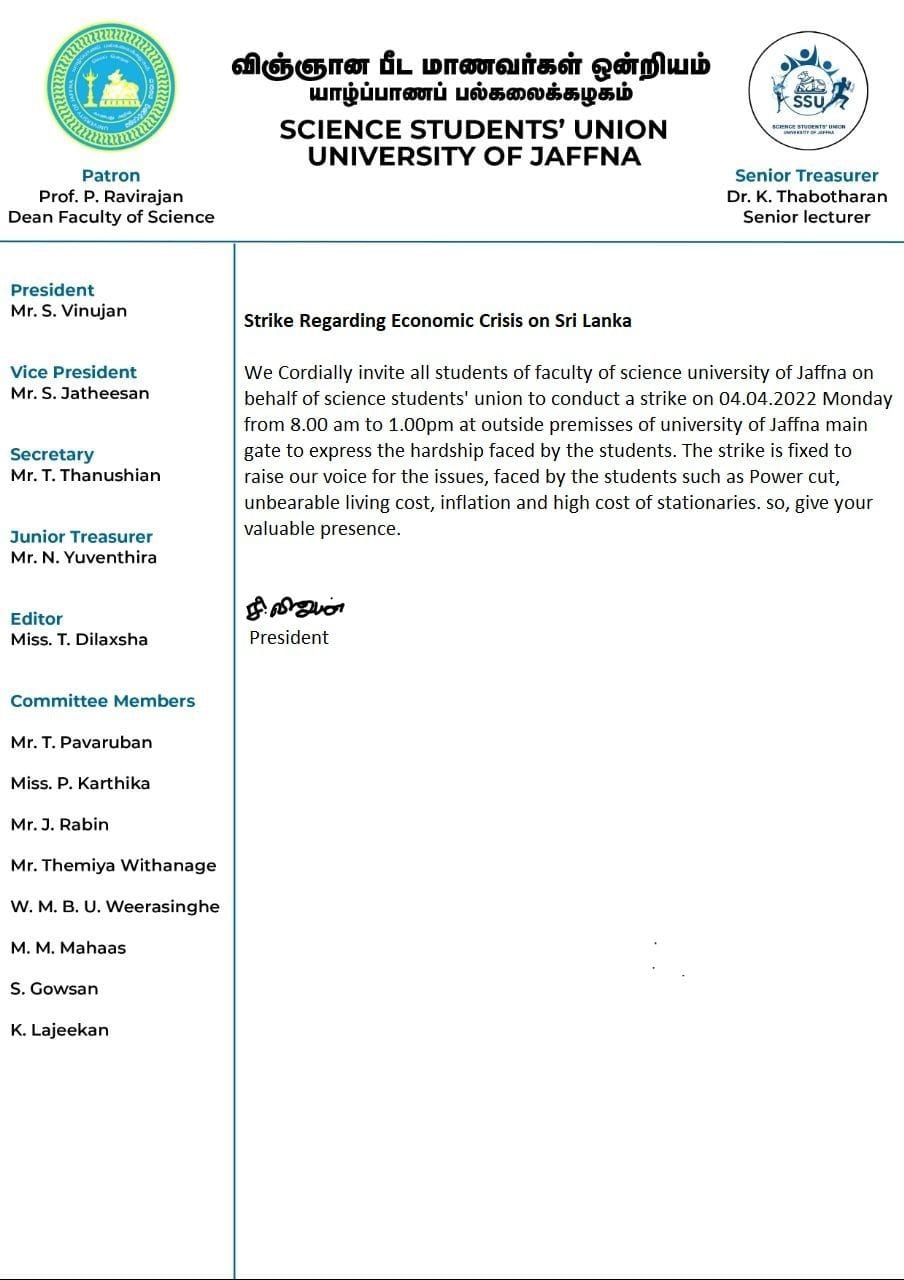
The protests come amidst a major political and economic crisis on the island.
Over the last few months, residents have stood in long lines to purchase basic necessities including fuel, food, and medicines. Government mismanagement has produced extensive debt and dwindling foreign reserves, restricting Sri Lanka from affording the import of the most basic supplies.
Who are the Rajapaksas?
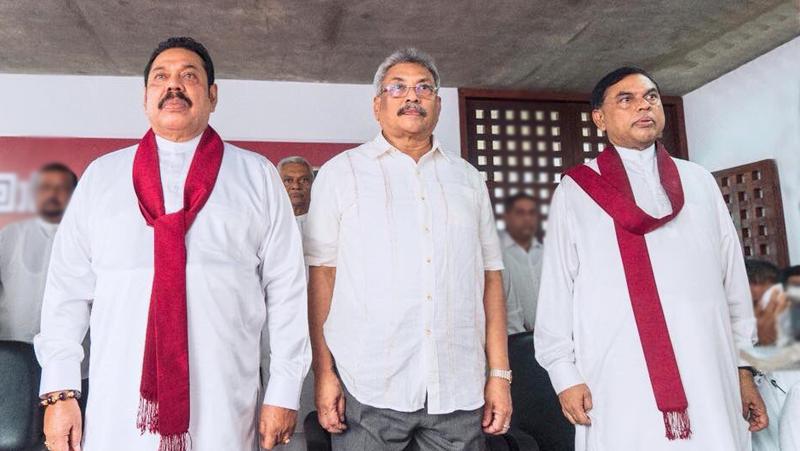
The Rajapaksa family, from Hambantota in the Sinhala South of the island, occupy several key positions in Sri Lanka’s government.
In 2019, Gotabaya Rajapaksa was elected as president of Sri Lanka, with an overwhelming majority across the Sinhala south.
His elder brother Mahinda Rajapaksa was appointed as Sri Lanka’s prime minister, whilst the youngest Rajapaksa brother Basil was finance minister, and the eldest, Chamal, agricultural minister – among the many different posts the family held.
This is not the first time that the family have been in power.
In 2009, Mahinda was president and Gotabaya the country’s defence secretary, as the Sri Lankan state launched a massive military offensive that killed tens of thousands of Tamil civilians. Several senior political and government figures, including the Rajapaksa siblings, have been accused of war crimes.

